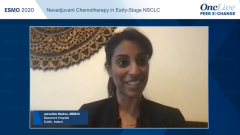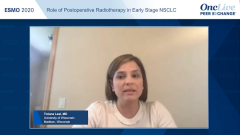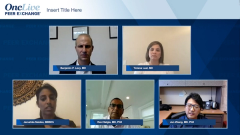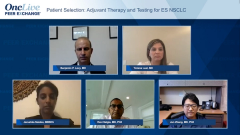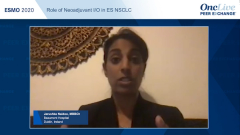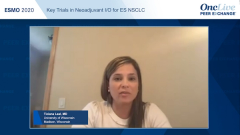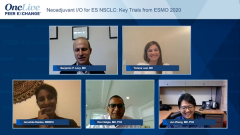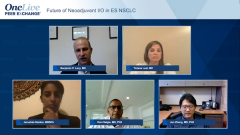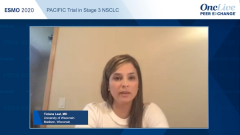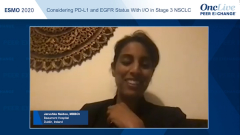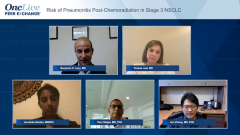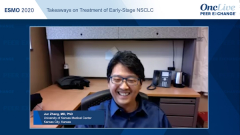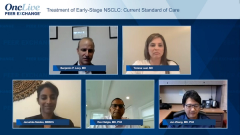
Takeaways on Treatment of Early-Stage NSCLC
Episodes in this series

Benjamin P. Levy, MD: Let’s finish up here. This has been an incredible conversation. It’s been an informative, rich discussion. Let’s provide some parting shots before we conclude. Dr Leal, I’ll start with you. What are your take-home thoughts as we wrap up this discussion?
Ticiana Leal, MD: I think it’s really encouraging to see these improved outcomes in early stage non–small cell lung cancer, and now the locally advanced non–small cell lung cancer space as highlighted by the data that we discussed. I really hope this will translate into improved cure rates for our patients. I’d like to thank everyone for being here today. It’s been great to see everyone, and I hope to see you all in person in the near future. Thank you.
Benjamin P. Levy, MD: Great. Dr Salgia?
Ravi Salgia, MD, PhD: I wanted to thank you, Dr Levy, for such great leadership in moderating all of us and keeping us in line; and Dr Leal, Dr Naidoo, and Dr Zhang for brilliant discussions. I’m going to start out by saying we’ve come a lung way, pun intended. It’s really important that these therapeutic options advance for all of our patients, and it’s also our job, as we learn more and more now and become the disciples of using these therapeutics, that we teach the strategies to everyone. So these educational symposia are incredibly important. Thank you everyone, and thanks for inviting me. This is great for our patients.
Benjamin P. Levy, MD: Thanks, Dr Salgia. Dr Zhang?
Jun Zhang, MD, PhD: It was a great pleasure meeting all of you. This was well organized. The way I seduce our fellows to get into thoracic oncology is that I keep telling them that we have 2 waves of revolution in lung cancer therapy. One is targeted therapy and the other is immunotherapy. With all of these wonderful studies with the beautiful data, we are going to see the same revolution happen in early stage nonmetastatic lung cancer. It was a fantastic discussion. I hope to see you soon, and I hope the pandemic is over soon as well.
Benjamin P. Levy, MD: Very good, Dr Zhang. Dr Naidoo, your final thoughts?
Jarushka Naidoo, MBBCh: Thank you, Ben, for an amazing discussion. I thought this was really educational for all of us. I was contemplating becoming a thoracic oncologist 10 years ago, and my colleagues said, “Why would you want to do that? There haven’t been any major advances. All we have is platinum doublet therapy. You should be a breast oncologist.” I remember saying, “No, I think lung is the next big thing.” This conference, among others, really highlights the advances that have been made in that time, and these great advances that are coming to our patients.
Benjamin P. Levy, MD: I’ll layer in my brief commentary. It takes a village. This is getting complicated, but it is very exciting. All disciplines, I say it takes a village, not only from medical oncology, radiation oncology, surgical oncology, pulmonary, but also the village within medical oncology—our social workers, our navigators, our nurses. It takes everyone to take these patients through this journey that has been altered dramatically over the past 10, 15 years. What an exciting time it is to be in this field.
Thank you all, again. And to our viewing audience, we hope you found this OncLive® Peer Exchange discussion to be useful and informative. Thanks again.
Transcript Edited for Clarity


